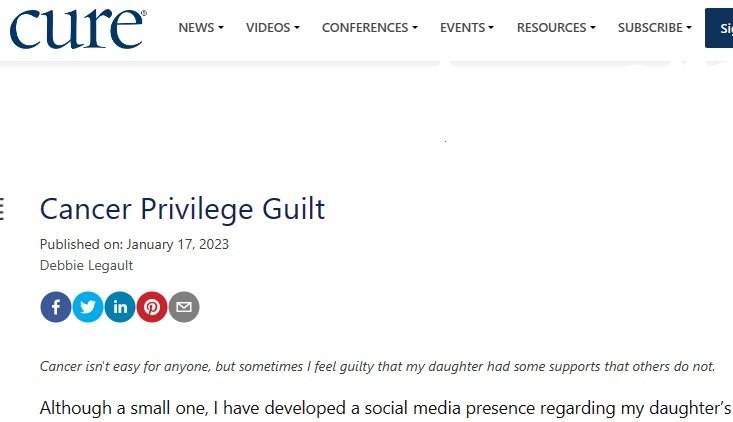Since Debbie Legault’s 27-year-old daughter developed cancer, the loving mother has dealt with a host of unpleasant emotions. One didn’t have a name, so Debbie coined a term: cancer-prviledge guilt. She named it to help her talk about it, understand it, live with it, and write something beautiful.
In Cancer Privilege Guilt, Debbie describes an unpleasant feeling associated with knowing she and her daughter have benefitted from having more advantages for dealing with cancer than many others. Reading that essay, I sympathized. My hyper-awareness of my many advantages during my first course of chemotherapy compelled me to write my first book so non-medical people could benefit from basic knowledge about cancer and the medical system.
Cancer-privilege guilt is a variation of “survivor guilt,” a term we’ve talked about on this blog. In 2018, in a short series beginning with Addressing Survivor Guilt. I shared why we need a better label than one with “guilt” in it. Rereading the posts today, years later, I still feel that “guilt” adds an undeserved burden of blame, however subconscious, to an uncomfortable feeling that is undertsandable and not due to doing anything wrong. I’ll keep looking.
Meanwhile, I was moved by the humanity of Debbie’s response to the unpleasant feeling. She voices her wish in three sentences at the conclusion of her essay, Cancer Privilege Guilt.
We welcome your comments! SEE COMMENTS UNDER COMMENT BOX (below)
Subscribe here for e-notifications of new posts. Privacy Policy: We collect only your name and email address—and we do not share with anyone. You may unsubscribe easily at any time. For archives of older posts, click here.

